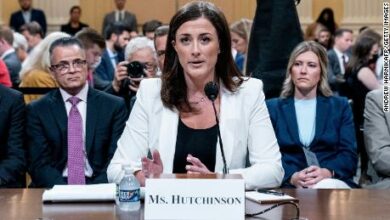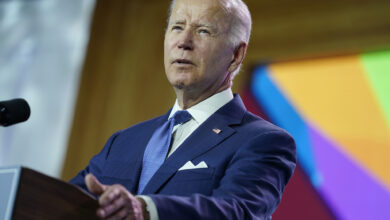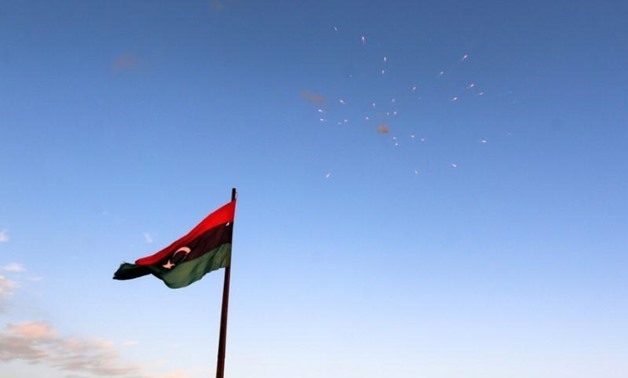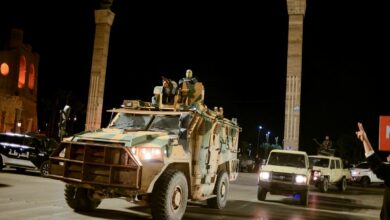In 2009, four Baha’i homes were burned down in the Upper Egypt village of Shouraneya, Sohag after a member of one of the families declared his faith on a TV show, highlighting the level of intolerance toward religious minorities in Egypt.
Two years and a revolution later, their homes were again torched when news spread that the families were returning to the village.
As Egypt prepares a draft constitution meant to uphold the rights of all citizens, equally and unequivocally, Baha’is fear it may be a letdown for religious minorities.
Article 37 of the draft constitution states that “freedom of religion is safeguarded.”
“The state ensures the freedom to build houses of worship for heavenly religions in abidance with the law,” the proposed article reads.
The stipulation of “heavenly religions” by default sidelines religious minorities, since Egyptian law only recognizes Islam, Christianity and Judaism as falling under this category. This has long kept followers of other faiths from enjoying full rights, including the right to build houses of worship. It has also posed problems in obtaining official documents which require presenting a national ID, on which citizens must identify their religious affiliation from among the three recognized faiths.
Raouf Hendy, spokesperson of the Baha’i community in Egypt, won in 2009 a court case which allowed his twins to leave a dash in the slot of religious affiliation on their national IDs. However, he says, married and divorced Baha’is still find it difficult to register their marital status on national IDs.
The court ruling was not based on the illegality of denying Baha’i as a religion recognized by the state, but rather on the right of Egyptian citizens to obtain official papers in a way that does not force them to deny their religion.
“We already suffer with our official papers stating our primary identity as Baha’i. This constitutional article … restricts the religious rights of its own people. This is not the role of the state,” Hendy told Egypt Independent.
Raafat Fouda, professor of constitutional law at Cairo University, said restricting the right to build houses of worship to “heavenly” faiths is a blatant violation of freedom of religion.
Although this is an issue of vital importance, hurdles arising because of problems with official documents take precedence in citizen’s daily lives.
“Our struggle for building houses of worship will come up soon after we solve our problems with official papers,” Hendy said, adding that the critical issue remains to be the state’s denial of Baha’i as a recognized religion.
“A religion does not need to be legitimized by the state because religion is a spiritual relationship between people and God. We did not seek recognition when our religion was replaced with a dash on national IDs, we just want acceptance, tolerance and our civil and constitutional rights as equal citizens,” Hendy said.
As Article 18 of both the Universal Declaration of Human Rights and the International Covenant on Civil and Political Rights, ratified by Egypt in 1968, stipulates: “Everyone has the right to freedom of thought, conscience and religion; this right includes freedom to change his religion or belief, and freedom, either alone or in community with others and in public or private, to manifest his religion or belief in teaching, practice, worship and observance.”
Fouda says Article 37 of the draft constitution “deprives believers of so called ‘non-heavenly religions’ of their basic right to build houses of worship and gives legislators the supreme right to articulate laws to organize [this activity].”
The proposed article may be perceived as a step forward in protecting the right of Copts and Jews to build places of worship, but Fouda sees otherwise.
“What if the [next] parliament has an Islamist majority? In this case, the majority may articulate the law in a way that will completely deprive Copts and Jews from this right — who knows?” Fouda said. A clause should be added to restrict the powers of legislators, he added, and the article should apply equally to believers of all religions.
Ishaq Ibrahim, a researcher on religious freedom at the Egyptian Initiative for Personal Rights, said the article is contradictory. “While the article protects the right of citizens to openly believe in whatever religion they choose, it deprives them the right to have their own houses of worship. The state gives you the right to choose your religion but deprives you from practicing it,” he said.
Freedom of religion, Ibrahim argues, does not only entail belief, but also the right to practice, observe and preach — which poses another dilemma. Article 38 of the draft constitution prohibits insulting prophets, which in Ibrahim’s view, further restricts religious freedoms.
“Religious freedom entails the right to preach for your religion, which usually entails criticizing other religions. According to Article 38, [this may be considered] blasphemy … [and] opens the door for discrimination against religious minorities, especially Baha’is, Copts and atheists,” Ibrahim added.
Rights groups say more than 17 cases of religious blasphemy were filed mainly against Copts and atheists following the leaking of a controversial film called “Innocence of Muslims” online in September, which caused an uproar among Muslims in a number of countries for its anti-Islam slant.
Hendy said that the existing atmosphere of intolerance toward Baha’is may worsen in the future.
“The constitution clearly states that my religion is not ‘heavenly,’ hence does not acknowledge it. What messages does this send to the Egyptian public? It simply tells them that Baha’is are not equal citizens,” Hendy added.




